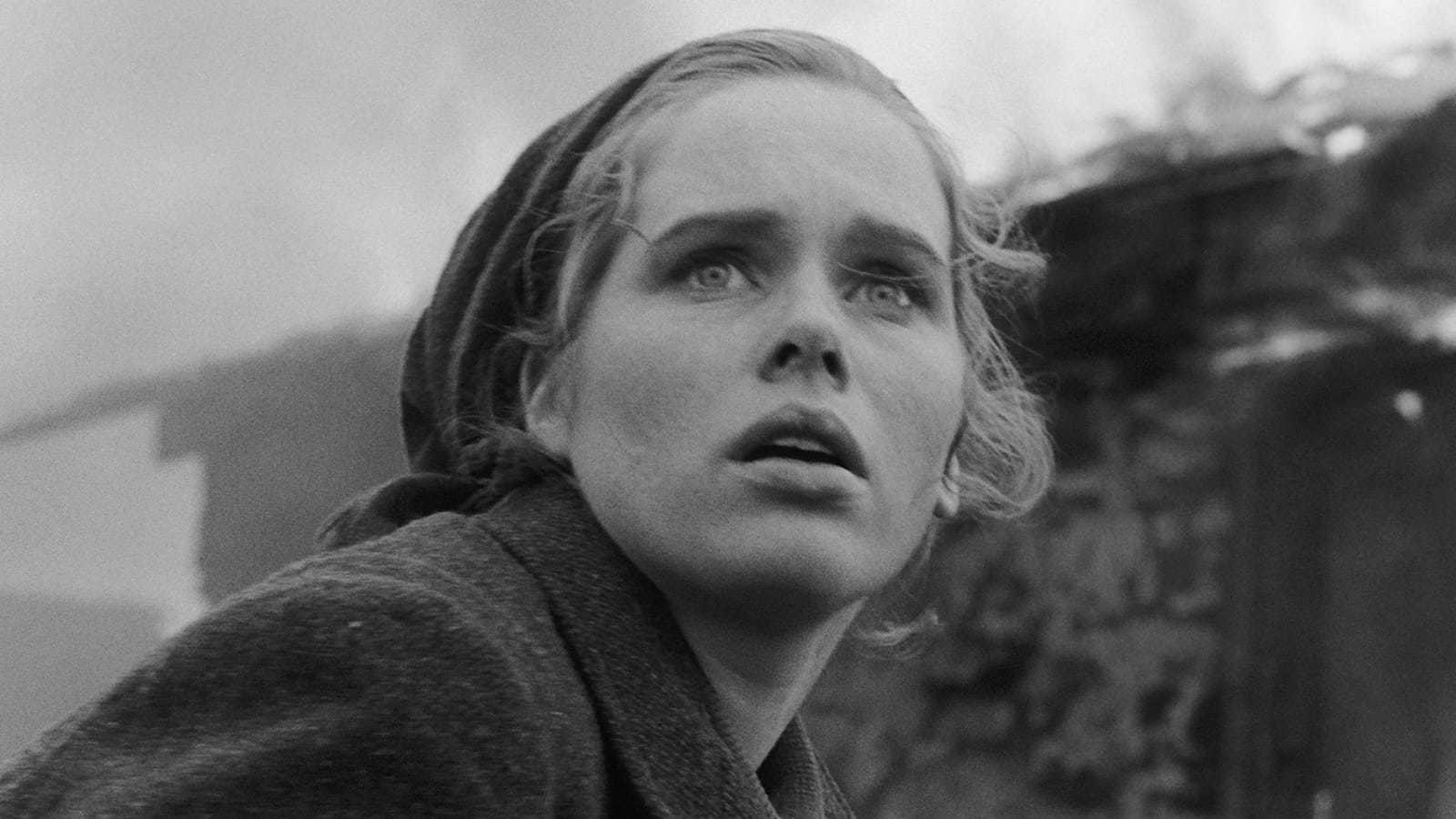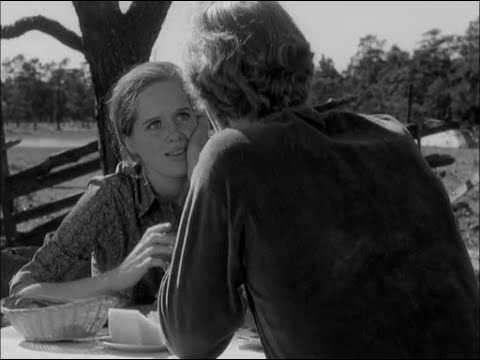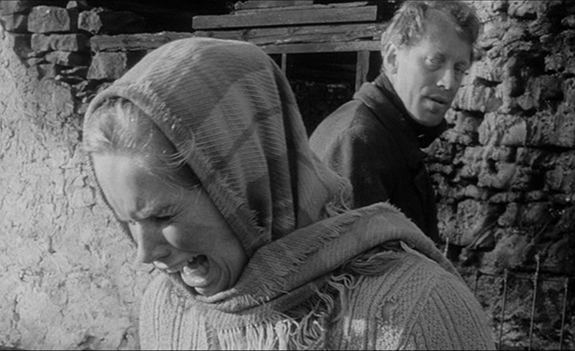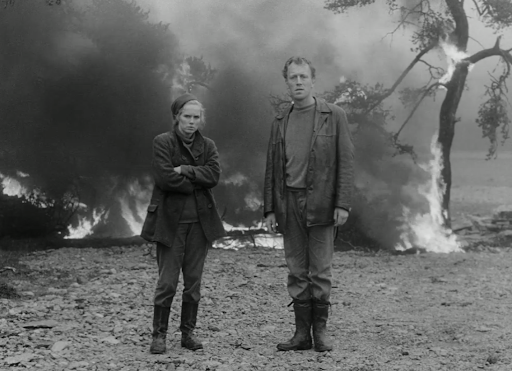The Honoraries: Liv Ullmann in "Shame"
 Thursday, March 17, 2022 at 10:30AM
Thursday, March 17, 2022 at 10:30AM We're celebrating each of the upcoming Honorary Oscar winners with a few pieces on their career.

by Eric Blume
Ingmar Bergman’s 1968 film Shame features one of Liv Ullmann’s greatest performances. This was the third collaboration between the two artists, and the film is the middle portion of Bergman’s unofficial “Island Trilogy” that started with The Hour of the Wolf and concluded with The Passion of Anna. Ullmann’s face is like the face of the film: beauty going blankly sour…
The film itself is quintessential Bergman with gorgeous, painterly wide shots (stunningly captured by cinematographer Sven Nykvist), a the hermetically-sealed universe, and the auteur's frequent themes of loneliness, isolation, and moral decay. Your perfect date movie (if you hate your date).
Bergman’s work on this picture is masterfully controlled. Ullmann and Max von Sydow play married musicians from the philharmonic in “the city” who have moved to “the island” to avoid “the war”, which inevitably reaches them. The quotes indicate both actual and metaphorical spheres, as the movie operates at all times in both universes: what we’re experiencing is absolutely real, but it’s also vague and symbolic…and Bergman makes this all work with his unparalleled method of gripping you tightly at the top of the film and never letting go.
The film is split into three sections (before the war reaches our couple; the harrowing midsection where they are bombed and terrorized; and the denouement)…and these three chapters allow both actors to chart a concentrated and painful arc for their characters. Von Sydow works his typical brilliance, believably moving from weak aesthete to immoral brute, and his work dovetails smashingly with Ullmann’s smaller but even more demanding journey from indecisiveness to hopelessness.
There’s a marvelous scene early in the picture (evidently improvised by the two actors, rare for Bergman) where Ullmann describes her hopes to resume learning Italian and have children with von Sydow. While the two actors start the film in a relationship that’s tetchy and unidealized, avoiding all cliches of either generalized happiness or misery, we understand in this early scene how the couple could be at their best, their most loving…

It makes what’s to come for their relationship that much more affecting. Ullmann is ravishing in this moment, so radiant that Bergman presents the entire scene with no editing, no reverse shot back to von Sydow. We see only his back throughout the minutes-long interchange, and we’re held by her simplicity and vulnerability as a performer. Ullmann captures a sublime ambiguity: her character could really believe what she’s saying, or it could be her kidding herself. Whether it's fantasy or reality for this woman, Ullmann raises the dramatic stakes.
Ullmann goes through the second third of the picture in alternating states of horror and confusion, perfectly capturing what a cultured, cosmopolitan artist might go through when thrust into actual violence and politics. Ullmann allows us to witness the loss of her character’s youth (she seems to physically age during this portion of the film), and uses this chapter to set up the final blows.
In the final third of the film, Ullmann lets this young, talented, intelligent character simply fall apart and break as the behavior of her husband surpasses any terror she’s experienced. Ullmann does this without ever becoming weak or soft: she is the driving force of this marriage, the realist and the strong. She has an incredible moment when she briefly bursts out crying after a turning-point with von Sydow. Somehow she makes the outburst come from nowhere and yet from somewhere very specific simultaneously. Her cry is not a moment of weakness but rather a sane attempt to keep everything together.

The work she does with Bergman's other muse, Von Sydow, is particularly poignant because as he goes deeper into a sort of poetic state in his acting as Shame progresses, she doubles down on the groundedness. This friction in their acting works extraordinarily well, and Bergman pushes them to truly go all the way. It’s a gorgeous pas de deux sustained for over ninety minutes.
Shame really is a small masterpiece, and it’s a stately example of what Bergman was capable of pulling out of Ullmann, and reciprocally what she was willing to give him of herself. Ullmann, in her late twenties at the time of shooting, already had a deep grasp of human psychology, of complicated behavioral dichotomies, and how to play them with such pristine purity that we can know exactly where her character is simply by looking at that incomparable face.

Previously: Cláudio on Persona
 Best Actress,
Best Actress,  Honorary Oscars,
Honorary Oscars,  Liv Ullmann,
Liv Ullmann,  Oscars (60s),
Oscars (60s),  Scandinavia,
Scandinavia,  Shame
Shame 

